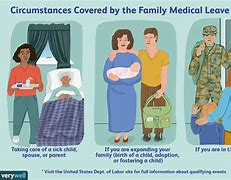Below is a review of the posts (on Facebook, LinkedIn, and X [formerly Twitter]) from the past week. You can check out the full posts by clicking on the links.

The post on Sunday 3/17/2024 was about the most common mistakes companies make that land their workers fat settlements. Employers can fall into legal pitfalls that can result in costly and damaging litigation brought by their current or former workers. Those suits could involve large settlements and more. So let’s talk about some of the most common legal landmines that compel employers into making settlement payments to their workers.
First is the improper handling of employee complaints. Most internal complaints are not legally protected under federal or state laws, but if employers’ actions/responses are wrong on ones that are protected — including those involving discrimination or harassment — it could open the door to legal liability. What if an employee reports that their supervisor has repeatedly made inappropriate advances (like those examples in the post) and the company doesn’t address it? This might lead to legal action by the employee and clear liability for the employer. One thing that can lead to the failure to respond, or an improper response, is having an under-trained human resources department. That is easily remedied as noted in the post, be it related to procedures, handbook provisions, retaliation, or other things that come up.
The second mistake is being a jerk to your employees. It should be common sense, but often there needs to be a reminder to treat employees with dignity and respect – that can be a huge asset in trying to keep the company on the right side of legal. And what starts in that arena might well end up in something else where the employer has liability. How that might arise is discussed in the post. It’s better to have employees treated properly and have that a defense (or mitigating factor).
The third mistake is misclassifying employees as exempt from overtime pay. This is a huge problem and one that the Department of Labor is always looking at. More details on this, and the other 2 mistakes (the last of which is often not understood by employers or their HR personnel) are listed and detailed in the post.
TAKEAWAY: Some things that could lead to legal liability are beyond the control of employers, but others are not; employers must do what they can to stay on the right side of legal, especially the easy things like in the post.

The post on Monday 3/18/2024 told us The Body Shop admits breaking employment law with ”brutal” last-minute mass sacking. Administrators for the troubled cosmetics company laid off about 270 head office staff, telling them over Microsoft Teams that they would not be paid beyond the end of the day and that the company would not provide them with any form of severance package. Some of the discharged employees had worked there for more than a decade. They were told to file for unemployment. Another 489 job losses and 75 store closures also were announced. That number includes at least 15 women on maternity leave or soon to have their baby, thus losing any maternity packages they had as employees. Statements from a few of the discharged employees are in the post. Some have applied for unemployment compensation; they are also considering asking their mortgage lenders for interest deferrals.
The company admitted to not having followed the law for this type of situation. But what the company additionally said about its action (sort of by way of excuse?) is in the post. Some of the discharged employees are contemplating further action. NOTE: the post is about actions that occurred in the UK, but what is said above is a rough translation to US law.
TAKEAWAY: There may be a statutorily-required timeline governing action by an employer in the case of mass layoffs – failure to comply can lead to large monetary liability for the employer. Work with an employment lawyer.

The post on Tuesday 3/19/2024 was about a former employee suing Sheriff over discrimination claim. Ugh, the alleged facts … In the crosshairs is Cleveland County Sheriff Chris Amason; the claims relate to sex and age discrimination amid allegations of financial misconduct. Let’s dig a bit deeper.
Terri Allison, former CFO, filed a federal civil rights lawsuit in which she alleges that a younger, less experienced male replaced her – but was also given a higher salary for the same work she performed. Amason has denied the allegations and demanded a jury trial (which is currently scheduled for January 2025). Allison accused Amason of “misusing public funds” as described in the post. Allison alleges that after she reported her findings to then-HR manager and other county employees, Amason threatened her, saying, “she better watch what she was saying.” But that’s not all.
The complaint further alleges that despite glowing evaluations, Amason demoted Allison after he hired a new CFO, Frank Magness, but when Allison then asked what her official job duties were, Amason became angry and threatened to decrease her pay. The rest of that conversation – and Amason’s behavior – is also in the post. Allison says she left the room “given Amason’s threatening and aggressive conduct.” By the following February, Allison was terminated. Amason’s filed answer both denied and admitted to some of Allison’s allegations. See the post on that. Allison is suing for back pay, punitive damages, attorneys fees and numerous other damages.
As a side note, but related, Amason’s financial practices have come under scrutiny after he claimed Cleveland County officials failed to fund approximately $7 million of his budget. The County Treasurer said there was no error. Interestingly, and according to county records, Amason will have spent his entire annual budget two months before the end of the fiscal year. And there’s more – see the post. The Cleveland County Sheriff’s Office said “In accordance with policy, we do not comment on open litigation.”
TAKEAWAY: While an employer may be able to take certain action, that does not make it legal or without recourse – especially when it comes to adverse action, talk to an employment lawyer ahead of time.

The post on Wednesday 3/20/2024 noted homeowner slams new ‘made up’ rule and fine for driveway parking that’s ‘no joke’. The person turned to socmedia for advice on handling the parking issue, which they said was their HOA wanting to fine them for a newly-developed parking rule regarding snow. The person lives in a condo. The posted question was: “Can an HOA fine a homeowner for a rule that was made up?” As part of the post, the owner included a statement from the property manager (which is in the post) about the new “fineable rule.” More language form the rule is also in the post. The owner thinks the rule is stupid and denied existence of the rule. The owner also talked in general about their problem with the rule (see the post) and enforcement when dealing with “snowbirds” (as noted in the post). The owner pointed out several things they think are problematic with the rule – see the post.
Others responded to the socmedia post. Some said the HOA could not do what it had, others said the answer was more complicated. Some also noted that if the HOA says the rule is valid, then the person should engage legal counsel.
TAKEAWAY: The fact that an owner does not like a rule in their condo or homeowners’ association does not mean the rule is illegal or unenforceable. Know the law. Contact a community association lawyer as to enforcement or interpretation.

In the post on Thursday 3/21/2024, we read that HOA attempted to evict despite owner working to pay off mortgage. Miesha Ross said her life turned into shambles after receiving a knock on her door from a process server who delivered an eviction notice in 2017. She already had a string of bad luck in the years before – see the post – and was struggling financially. She said she was working with creditors was the foreclosure surprised her. She thought it was by her mortgage company; it was by the HOA. That was the start of a years-long legal battle between Ross and the Timbers Homeowners Association.
Ross filed for bankruptcy in 2017 and 2019 to catch up to her mounting debt in order to save her home. Since then she’s paid HOA legal fees – how much and why are in the post. She was late in paying HOA assessments a few times. The HOA moved to have her bankruptcy case dismissed. What did the HOA have to say about this case? See the post.
TAKEAWAY: Owners need to know if condo/co-op/HOA assessments are part of their mortgage payment; if not, they need to ensure payment to the association so that it will not take advantage of its legal remedies, including foreclosure. Again, a community association lawyer can help.

The post on Friday 3/22/2024 told us Walmart agrees to pay $70K and offer job to employee in EEOC disability discrimination suit. As it should. The settlement was announced on March 7, 2024. The EEOC alleged in its lawsuit that Walmart violated the ADA when it revoked permission for an employee with a disability to use a store electric cart as a reasonable accommodation for a disability, forcing him to take unpaid leave. The EEOC said that shortly after hiring Luis Quiñones, who uses a prosthetic leg, Walmart accommodated Quiñones by permitting him to use one of the store’s electric carts to perform some of his job duties. But about seven months later, Walmart told Quiñones he was no longer able to use the cart (for the reason noted in the post). What Walmart did for other employers is also in the post. The suit alleged that Walmart failed to offer an alternative reasonable accommodation that would have allowed Quiñones to continue working, and instead, placed him on indefinite unpaid leave. The EEOC filed suit in federal court after first attempting to reach a pre-litigation settlement through its administrative conciliation process.
The settlement involved more than Walmart paying monetary damages. It agreed to offer Quiñones a job at one of its locations and much more as detailed in the post. The EEOC will look over its shoulder for compliance.
TAKEAWAY: Employers must know their obligations under the ADA – when and how they must accommodate eligible employees. An employment lawyer can help ensure legal compliance.

Finally, in the post yesterday 3/23/2024, we were reminded that spousal care FMLA leave calls for empathy from employers. Employers should ensure that employees requesting spousal care FMLA time off are eligible for FMLA leave and meet other legal criteria. And be kind. So what steps should an employer take when faced with an employee’s request for FMLA leave for spousal care?
First, ensure that the employee is eligible, i.e., meets the requirements under the ADA (which are listed in the post). Provide the proper forms to the employee (as noted in the post). And make sure to know how “spouse” is defined for these purposes (as explained in the post).
Next, know how the employer’s leave of absence policy works in tandem with FMLA leave. The company’s policy might be broader (as noted in the post). Further, know how to count absence for FMLA purposes. Some examples are in the post.
The post also mentions and discusses in detail, with examples, the third thing employers should do in this type of situation (including now what is and is not covered by the leave).
TAKEAWAY: The FMLA includes various categories of care for which eligible employees can take unpaid leave – employers must know what is covered, the criteria to be met, and their obligations. Your employment lawyer can help.

 York, Pennsylvania 17403
York, Pennsylvania 17403